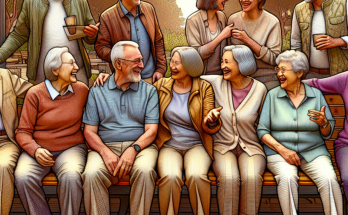Friendships, as with all relationships, can be extremely satisfying. But friendships don’t last forever. In some instances, they develop, dissipate or simply stop. A friendship split can be just as painful to go through as a romantic breakup but there is rarely any advice on how to handle it. You can manage a friendship goodbye responsibly and without drama.
1. Recognize When It’s Time to Let Go
Friendships tend to fluctuate, but sometimes we just need to let go. Some signs include:
- Constant negativity or criticism.
- Lack of reciprocity or one-sided effort.
- Betrayal of trust.
- Misalignment of values or priorities.
- Persistent feelings of discomfort or anxiety after interactions.
Recognizing these signs doesn’t mean you’re giving up too easily. Instead, it’s about prioritizing your mental and emotional well-being.
2. Reflect on the Relationship
Before deciding to end a friendship, take time to reflect:
- What went wrong? Understanding the issues can bring clarity and prevent miscommunication.
- Did I contribute to the problem? Self-awareness helps you approach the situation without blame.
- Is the relationship salvageable? Sometimes, honest conversations can resolve underlying issues.
Thought plays a key role in determining whether your decision is well-informed or driven by unthought.
3. Communicate Honestly and Compassionately
When ending a friendship, honesty is the best policy—but it must be tempered with kindness. Here’s how to approach the conversation:
- Choose a neutral, private setting.
- Use “I” statements to express your feelings without placing blame. For example, say, “I feel like our priorities have changed,” rather than, “You’ve been a bad friend.”
- Acknowledge the good times you shared and express gratitude for the relationship.
- Be clear but gentle about your decision.
You don’t want to ghost or text break the friendship — you won’t leave something open and it will create unneeded drama.
4. Set Boundaries
Whether or not the friendship comes to a head, it’s important to establish boundaries. This could include cutting down on contact, staying away from mutual social groups, or unfollowing people on social media to prevent emotions.
Lines protect your space in your head, and enable you to move on without resentment or bitterness..
5. Embrace Emotional Healing
Friendships are often broken, whether through sorrow, guilt, relief or even anger. Let yourself experience these emotions:
- Acknowledge your emotions. Suppressing them will only delay healing.
- Talk to someone you trust. Sharing your experience with a neutral third party, such as a family member or therapist, can provide valuable perspective.
- Engage in self-care. Journaling, exercising, or spending time on hobbies can help you cope and heal.
Remember, it’s okay to mourn the loss of a friendship. This process is essential for closure and growth.
6. Avoid Gossiping or Seeking Revenge
When hurt or angered, you might feel the urge to share it with your friends, or send cryptic notes on social media. Resist this urge. The gossip not only plays into your head but carries bad things with it.
Rather, keep your dignity and conduct the incident in a gracious manner. Silence and respect tend to speak for themselves..
7. Learn From the Experience
Every relationship teaches us something about ourselves. Consider what we can learn from this friendship:
- What qualities do you value in a friend?
- What boundaries will you set in future friendships?
- How can you communicate more effectively in relationships?
By learning from the experience, you can grow as an individual and cultivate healthier connections moving forward.
8. Keep an Open Mind for Reconciliation
Some friendships dissolve irreversibly, but others may need time to heal. And if you and your friend come to the conclusion that the relationship is worth saving, remain humble and honest about it.
Rebuilding trust takes effort, but it’s possible if both parties are willing to forgive and grow.
9. Focus on Positive Relationships
When a friendship dissolves, turn your attention to the relationships you are in love with. Make yourself and your friends and family a priority. Connecting with a new friend or renewing an old friendship can fill the hole left by the broken friendship..
Remember, quality always trumps quantity in friendships.
10. Accept That It’s Okay to Outgrow Friendships
Not all friendships are meant to be lifelong. People evolve, and as a result relationships can drift naturally. Knowing this makes it easier for you to see a friendship as a closing chapter instead of a failure.
It’s okay to outgrow friends; it’s a sign that you’re evolving and seeking connections that align better with your current values and priorities.
Conclusion
Breakups with friends can be hard, but not as hard as they seem. If you handle the situation honestly, compassionately, and with self-reflection, you can manage the loss of a friend gracefully. Let yourself heal, grow from the experience and cherish the good things in your life. You’ll be opening the door to healthier and happier relationships in the future..




